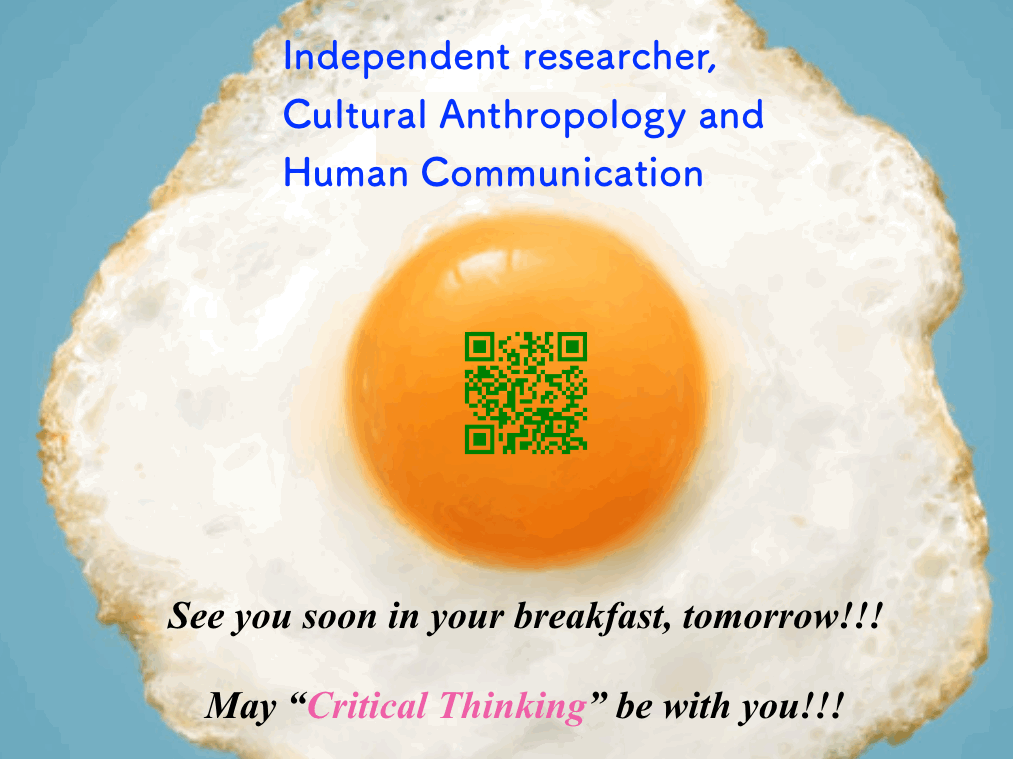他者としての人工知能
Artificial Intelligence as Others

他者としての人工知能
Artificial Intelligence as Others

Artificial general intelligence, とは、汎用人工知能、あるいは、汎用AIといわれるものである。
ウィキの定義"Artificial general intelligence,"をみてみよう。
"Artificial general intelligence (AGI) is the intelligence of a machine that could successfully perform any intellectual task that a human being can. It is a primary goal of artificial intelligence research and a common topic in science fiction and futurism. Artificial general intelligence is also referred to as "strong AI",[1] "full AI"[2] or as the ability of a machine to perform "general intelligent action".[3]"
人工知能(AGI)とは、人間ができるあらゆる知的作業を成功させることができる機械の知能である。人工知能研究の主要な目標であり、SF
や未来論でよく取り上げられるテーマである。人工知能は、「強力なAI」、「完全なAI」、あるいは「一般的な知的行動」を行う機械の能力とも呼ばれる。
そこで引用されている文献は3点である。
さらに、モラベックの逆説(Moravec's paradox)というものがある。
"Moravec's paradox is the discovery by artificial intelligence and robotics researchers that, contrary to traditional assumptions, high-level reasoning requires very little computation, but low-level sensorimotor skills require enormous computational resources. The principle was articulated by Hans Moravec, Rodney Brooks, Marvin Minsky and others in the 1980s. As Moravec writes, "it is comparatively easy to make computers exhibit adult level performance on intelligence tests or playing checkers, and difficult or impossible to give them the skills of a one-year-old when it comes to perception and mobility."[1]"Moravec, Hans (1988), Mind Children, Harvard University Press, p.15.
モラベックのパラドックスとは、人工知能やロボット工学の研究者が、従来の仮定に反して、高レベルの推論はほとんど計算を必要としないが、 低レベルの感覚運動スキルには膨大な計算資源を必要とするという発見である。この原理は、1980年代にハンス・モラベック、ロドニー・ブルックス、マー ビン・ミンスキーらによって明らかにされた。モラベックによれば、「コンピュータに知能テストやチェッカーで大人並みの性能を発揮させるのは比較的簡単だが、知覚や移動に関しては1歳児並みの能力を持たせるのは難しいか不可能である」のだという。
さて、ここからは他者の説明である。
[T]he “generalized other,” which we experience primarily as an abstract social status and the role that goes with it. It was developed by George Herbert Mead as a core concept in his discussion of the social genesis of the self. According to Mead, the self lives in an individual's ability to account for himself as a social being. This also requires a person to account for the role of the other as well as how his or her actions could affect a group. The generalized other represents the collection of roles and attitudes that people use as a reference to figure out how to behave in any particular situation. According to Mead:
主に抽象的な社会的地位とそれに付随する役割として経験する「一般化された他者」。これは、ジョージ・ハーバート・ミードが、自己の社会的
発生を論じる際の中核概念として開発したものである。ミードによれば、自己は、個人が社会的存在として自分自身を説明する能力の中に生きている。そのため
には、自分の行動が集団にどのような影響を与えることができるかということと同様に、他者の役割を説明することも必要である。一般化された他者とは、人々
が特定の状況においてどのように振舞うべきかを把握するために参照する役割や態度の集合体を代表するものである。ミードによると、……
"Selves develop in social contexts as people learn to take the roles of their consociates such that they can with a fair degree of accuracy predict how one set of actions is likely to generate fairly predictable responses. People develop these capacities in the process of interacting with one another, sharing meaningful symbols, and developing and using language to create, refine, and assign meanings to social objects (including themselves)."
自己は、社会的文脈の中で、ある一連の行動がかなり予測可能な反
応を生み出す可能性が高いことを、かなりの精度で予測できるような仲間の役割を担うことを学ぶことによって発達する。人々は、互いに交流し、意味のある象
徴を共有し、言語を発達させて使用し、社会的対象(自分自身を含む)に意味を作り、洗練し、割り当てる過程で、こうした能力を発達させるのである。
For people to engage in complex and intricate social processes, they have to develop a sense of expectations--the rules, roles, norms, and understanding that make responses predictable and understandable. When you learn these rules as distinct from others, the aggregate comprises a generalized other." Source: https://www.thoughtco.com/concept-of-other-in-sociology-3026437
人々が複雑で入り組んだ社会的プロセスに関与するためには、期待感--反応を予測可能で理解可能なものにするルール、役割、規範、理解--を発達させなければならない。これらのルールを他者とは異なるものとして学ぶと、その集合体は一般化された他者を構成する
リンク(AI関係)
リンク(他者関係)
文献
その他の情報
Copyleft, CC, Mitzub'ixi Quq Chi'j, 2016-2099

Do not paste, but
[Re]Think our message for all undergraduate
students!!!